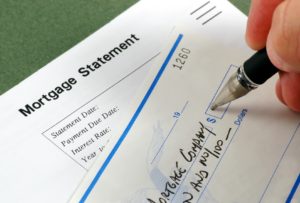the RISING INTEREST RATE: WHAT IT MEANS IF YOU’RE BUYING A HOME
In December 2015, the Federal Reserve announced the first interest rate hike in nine years. Although this increase is very small (only about 0.25%- 0.5%), most economists predict future increases at the end of 2016. As a result, many are wondering how increasing interest rates may impact the real estate market. Current homeowners may also wonder how the changing interest rate may affect their mortgages.
PURCHASING POWER
The interest rate on a loan will be factored into your monthly cost. That means rising interest rates can have a direct effect on your purchasing power and on the kind of home that you are able to afford.
This table shows maximum purchasing power as it relates to a rising interest rate. It assumes that the down payment percentage and monthly payment both remain unchanged.
| Interest Rate | Price Limit |
|---|---|
| 4.00% | $393,552 |
| 4.25% | $381,932 |
| 4.50% | $370,817 |
| 4.75% | $360,181 |
| 5.00% | $350,000 |
The good news is that as of now, interest rates are still very low, so the effect on your purchasing power is negligible. However, rates are predicted to eventually continue to rise.
RISING COST OF HOMES
This year, home prices in central Ohio have seen a 6.3% increase while inventory remains historically low. This means that there are many buyers competing to bid on the same homes, resulting in even higher sale prices. The rising cost of real estate in central Ohio can even further reduce buyer’s purchasing power.
SO WHAT SHOULD YOU DO?
Is it better to act now, or just wait this out?
If you have reached a time in life when you’re considering the purchase of a new home, it’s best to stick with the plan. As of right now, interest rates are still low and likely to remain so for the remainder of 2016. In fact, now is probably the best time to buy, because the trends of rising interest rates and home prices are likely to continue in the future.
REFINANCING?
Should you refinance your current home loan in anticipation of rising interest rates? The answer depends on your closing costs and how long you plan to stay in your home. Use this simple formula to calculate your break-even point:
Break-even point = Total closing costs / monthly savings
If refinancing will save you enough money to pay for itself, this may be the time to do so. However, if you are unlikely to stay in your home for long enough to reach that break-even point, it may not be worth it.
There’s no need to panic about the slowly-rising interest rate. Instead, look at it as an opportunity to make desired changes.

